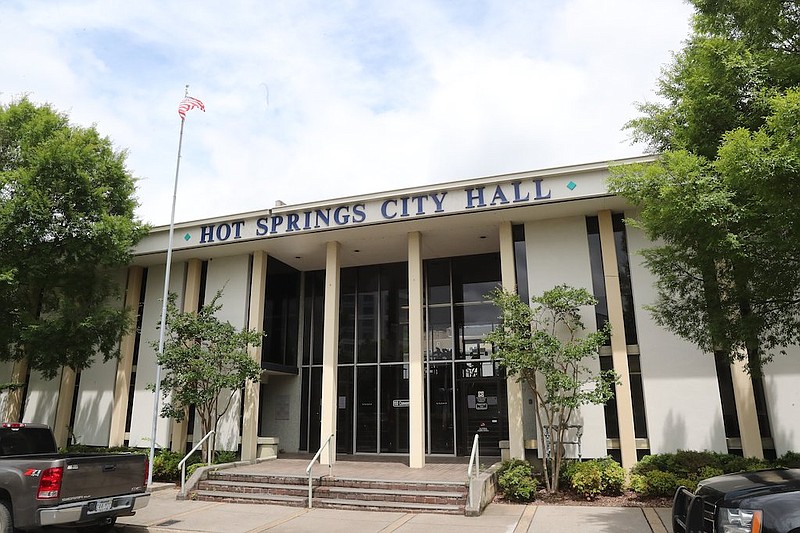Where has the workforce gone? It's a question employers in all sectors of the economy are asking, including the city of Hot Springs.
Many people who left the workforce last year have yet to return, and millions more have left in recent months, spurning higher wages, signing bonuses and other perks employers have dangled to attract workers in a tight labor market.
"I've talked to a lot of people in town who are struggling to find employees," City Manager Bill Burrough told the Hot Springs Board of Directors last month. "I don't know what you can pay them right now to get people to come to work. All of the peer publications I'm reading, it's not Hot Springs, it's not Little Rock. It's all over the nation. Everybody's trying to figure out what happened to the workforce, because they're gone."
With new workers at a premium, retaining existing workers has become more urgent. The longevity/retention incentive plan Burrough presented last month would update the current plan established in 1973. It caps longevity pay at $900 a year, an incentive employees qualify for after 30 years of service. A $166 annual incentive is paid after five years of service, $385 after 10 years, $472 after 15 years and $622 after 20 years.
The plan Burrough presented last month would pay a $2,500 incentive after five years of service. A $1,000 annual incentive would be paid in years six through 14 of service, $1,500 in years 15 through 19 and $2,000 after 20 years.
The plan would cost $585,000 next year, a $359,000 increase from the cost of the current plan in 2021.
A $500 incentive would accrue during each of the first five years of service, but the benefit wouldn't be paid until after the fifth year. Police Chief Chris Chapmond told the board paying a portion of the incentive after each year of the five-year period would be a more effective incentive.
The city's human resources department said the starting salary for a police officer is $41,808. The city said increasing the signing bonus for new officers from $2,500 to $5,000 has had a negligible effect on its ability to recruit new hires, as other municipal law enforcement agencies in the state are paying signing bonuses twice that amount.
"From a police chief's standpoint, we have conversations how we can hire people for five years," Chapmond told the board. "My question is what are we doing to incentivize them to keep them for five years? They're going to want something year to year. I think we're still losing people at one to five years by holding that $2,500 until the fifth year.
"I don't know if that incentivizes them to stay for that sixth year. I don't know that that incentivizes those young people who are looking to go somewhere else."
Human Resources Director Minnie Lenox said signing bonuses have become more frequent amid the heightened competition for workers, causing some employers to overlook their existing workforce.
"If you look around the country, they're talking about sign-on bonuses," she told the board. "We forget those employees who have been faithful and who have been here for all these years. You're going to attract those coming in on the beginning. What about those who already here? Then you can use those people as mentors to these others coming in. When you look at these going out, you will have a succession plan already in place."
Mid-year salary adjustments totaling $225,000 the city paid out in June 2019 proceeded from the Classification and Compensation Study Update the Johanson Group presented earlier that year. The salary survey found that, on average, city employees' compensation trailed the average hourly market wage for their positions.
The mid-year adjustment and 2% and 3.5% cost-of-living adjustments paid in 2020 and 2021 were intended to move more employees up to the median market wage, but Burrough said the tight labor market has made the 2019 salary survey obsolete. The city's COLAs haven't kept pace with what the private sector is paying, he said.
The 2022 budget Burrough presented included a 3.25% COLA. He told the board he plans to present an end-of-the-year bonus similar to what the Garland County Quorum Court Finance Committee advanced earlier this month for county employees.
The bonuses would be paid from the county's American Rescue Plan Act allocation. Full-time employees would receive $1 an hour for up to 1,200 hours worked between Jan. 3 and Oct. 23. Part-time employees would receive the bonus for up to 600 hours worked during the January to October period.
Burrough said the city could use its ARPA funding for a similar payout.
